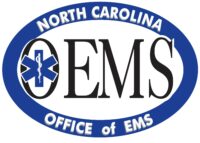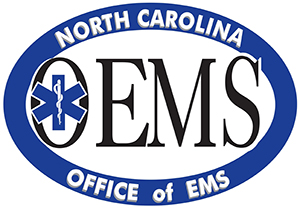10A NCAC 13P .1507 EMS PERSONNEL CREDENTIALS
(a) Any EMS credential that has been forfeited under G.S. 15A-1331.1 may not be reinstated until the person has complied with the court’s requirements, has petitioned the Department for reinstatement, has completed the disciplinary process, and has received Department reinstatement approval.
(b) The Department shall amend, deny, suspend, or revoke the credentials of EMS personnel for any of the following:
(1) significant failure to comply with the applicable performance and credentialing requirements as found in this Subchapter;
(2) making false statements or representations to the Department, or concealing information in connection with an application for credentials;
(3) making false statements or representations, concealing information, or failing to respond to inquiries from the Department during a complaint investigation;
(4) tampering with, or falsifying any record used in the process of obtaining an initial EMS credential, or in the renewal of an EMS credential;
(5) in any manner or using any medium, engaging in the stealing, manipulating, copying, reproducing, or reconstructing of any written EMS credentialing examination questions, or scenarios;
(6) cheating, or assisting others to cheat while preparing to take, or when taking a written EMS credentialing examination;
(7) altering an EMS credential, using an EMS credential that has been altered, or permitting or allowing another person to use his or her EMS credential for the purpose of alteration. “Altering” includes changing the name, expiration date, or any other information appearing on the EMS credential;
(8) unprofessional conduct, including a significant failure to comply with the rules relating to the function of credentialed EMS personnel contained in this Subchapter, or the performance of or attempt to perform a procedure that is detrimental to the health and safety of any person, or that is beyond the scope of practice of credentialed EMS personnel or EMS instructors;
(9) being unable to perform as credentialed EMS personnel with reasonable skill and safety to patients and the public by reason of illness that will compromise skill and safety, use of alcohol, drugs, chemicals, or any other type of material, or by reason of any physical impairment;
(10) conviction in any court of a crime involving moral turpitude, a conviction of a felony, a conviction requiring registering on a sex offender registry, or conviction of a crime involving the scope of practice of credentialed EMS personnel;
(11) by theft or false representations, obtaining or attempting to obtain, money or anything of value from a patient, EMS Agency, or educational institution;
(12) adjudication of mental incompetence;
(13) lack of competence to practice with a reasonable degree of skill and safety for patients, including a failure to perform a prescribed procedure, failure to perform a prescribed procedure competently, or performance of a procedure that is not within the scope of practice of credentialed EMS personnel or EMS instructors;
(14) performing as a credentialed EMS personnel in any EMS System in which the individual is not affiliated and authorized to function;
(15) performing or authorizing the performance of procedures, or administration of medications detrimental to a student or individual;
(16) delay or failure to respond when on-duty and dispatched to a call for EMS assistance;
(17) testing positive, whether for-cause or at random, through urine, blood, or breath sampling, for any substance, legal or illegal, that is likely to impair the physical or psychological ability of the credentialed EMS personnel to perform all required or expected functions while on duty;
(18) failure to comply with G.S. 143-518 regarding the use or disclosure of records or data associated with EMS Systems, Specialty Care Transport Programs, Alternative Practice Settings, or patients;
(19) refusing to consent to any criminal history check required by G.S. 131E-159; (20) abandoning or neglecting a patient who is in need of care, without making arrangements for the continuation of such care;
(21) falsifying a patient’s record or any controlled substance records;
(22) harassing, abusing, or intimidating a patient, EMS personnel, other allied healthcare personnel, student, educational institution staff, members of the public, or OEMS staff, either physically, verbally, or in writing;
(23) engaging in any activities of a sexual nature with a patient, including kissing, fondling, or touching while responsible for the care of that individual;
(24) any criminal arrests that involve charges that have been determined by the Department to indicate a necessity to seek action in order to further protect the public pending adjudication by a court;
(25) altering, destroying, or attempting to destroy evidence needed for a complaint investigation being conducted by the OEMS;
(26) significant failure to comply with a condition to the issuance of an encumbered EMS credential with limited and restricted practices for persons in the chemical addiction or abuse treatment program;
(27) unauthorized possession of lethal or non-lethal weapons, chemical irritants to include mace, pepper (oleoresin capsicum) spray and tear gas, or explosives while in the performance of providing emergency medical services;
(28) significant failure to comply to provide EMS care records to the licensed EMS provider for submission to the OEMS as required by Rule .0204 of this Subchapter; (29) continuing to provide EMS care after local suspension of practice privileges by the local EMS System, Medical Director, or Alternative Practice Setting;
(30) representing or allowing others to represent that the credentialed EMS personnel has a credential that the credentialed EMS personnel does not in fact have;
(31) diversion of any medication requiring medical oversight for credentialed EMS personnel;
(32) filing a knowingly false complaint against an individual, EMS Agency, or educational institution; or
(33) failure to comply with educational requirements defined in Sections .0500 and .0600 of this Subchapter.
(c) Pursuant to the provisions of G.S. 131E-159(h), the OEMS shall not issue an EMS credential for any person listed on the North Carolina Department of Public Safety, Sex Offender and Public Protection Registry, or who was convicted of an offense that would have required registration if committed at a time when the registration would have been required by law.
(d) Pursuant to the provisions of G.S. 50-13.12, upon notification by the court, the OEMS shall revoke an individual’s EMS credential until the Department has been notified by the court that evidence has been obtained of compliance with a child support order. The provisions of G.S. 50-13.12 supersede the requirements of Paragraph (f) of this Rule.
(e) When a person who is credentialed to practice as an EMS professional is also credentialed in another jurisdiction and the other jurisdiction takes disciplinary action against the person, the Department shall summarily impose the same or lesser disciplinary action upon receipt of the other jurisdiction’s action. The EMS professional may request a hearing before the EMS Disciplinary Committee. At the hearing the issues shall be limited to:
(1) whether the person against whom action was taken by the other jurisdiction and the Department are the same person;
(2) whether the conduct found by the other jurisdiction also violates the rules of the N.C. Medical Care Commission; and
(3) whether the sanction imposed by the other jurisdiction is lawful under North Carolina law.
(f) The OEMS shall provide written notification of the amendment, denial, suspension, or revocation. This notice shall be given personally or by certified mail, and shall set forth:
(1) the factual allegations;
(2) the statutes or rules alleged to have been violated; and
(3) notice of the individual’s right to a contested hearing, set forth in Rule .1509 of this Section, on the revocation of the credential.
(g) The OEMS shall provide written notification to the EMS professional within five business days after information has been entered into the National Practitioner Data Bank and the Healthcare Integrity and Protection Integrity Data Bank.
(h) The EMS System Administrator, Primary Agency Contact, Medical Director, Educational Institution Program Coordinator, or Medical Advisor shall notify the OEMS of any violation listed in Paragraph (b) of this Rule within 30 days of discovery of the violation or upon completion of the internal agency or EMS system investigation.

